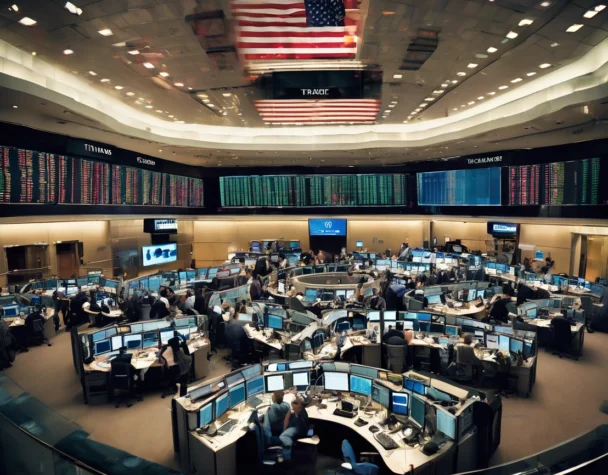
Markets React Sharply to Tariff Turmoil and Earnings Reports
Mon, April 28, 2025Tensions in financial markets are reaching a boiling point as investors digest a combination of escalating U.S. trade policies, mixed corporate earnings, and global economic concerns. Recent headlines reflect growing volatility, with analysts warning that prolonged uncertainty could pose risks to both Wall Street and international markets.
US Stock Markets Wobble Under Tariff Pressures
April 2025 has proven to be a rocky month for U.S. equities. Following President Trump’s announcement of a sweeping 10% tariff on all imports, the Dow Jones Industrial Average nosedived more than 4,000 points over a two-day period, pushing the S&P 500 firmly into correction territory. Although a temporary pause in additional tariffs brought a brief relief rally, volatility remains heightened across major indices.
Investors are keeping a close eye on the Federal Reserve, which has signaled it may delay any rate cuts due to inflation concerns despite the fragile market sentiment. Market strategists from Barron’s note that traders are pricing in greater risks, with sectors like technology and consumer goods bearing the brunt of the sell-off. Meanwhile, earnings season is adding another layer of complexity, with Apple, Amazon, and Microsoft expected to announce quarterly results this week.
Energy markets are also reacting, albeit modestly. Brent crude prices rose to $66.96 per barrel amid speculation that the OPEC+ group might announce a production hike during their early May meeting. However, with trade talks between the U.S. and China still unresolved, commodity markets remain cautious.
Global Economies Show Mixed Signals
Across the Atlantic, European stocks are under pressure. The strength of the euro, combined with U.S. tariffs, has weighed heavily on exporters. In response, the European Central Bank recently cut interest rates, citing the need to stimulate modest economic growth. Analysts at Financial Times emphasize that political and trade risks continue to cloud the eurozone’s outlook.
In Asia, Japan’s economy remains fragile. Although inflation has started to pick up, the Bank of Japan is opting for a cautious approach, avoiding rapid rate hikes. Emerging markets, particularly in Southeast Asia and Africa, are feeling the sting of falling export demand and rising debt loads, exacerbated by the strong U.S. dollar and trade barriers.
This week’s upcoming economic data — including the April jobs report, the Personal Consumption Expenditures (PCE) inflation index, and first-quarter GDP numbers — will offer critical insights into whether the U.S. economy can weather these ongoing headwinds. Investors are also watching corporate earnings releases closely for hints about future profitability amid a slowing macroeconomic backdrop.
Market watchers suggest preparing for continued choppiness ahead, as financial markets wrestle with policy uncertainties, geopolitical tensions, and shifting monetary strategies worldwide.

